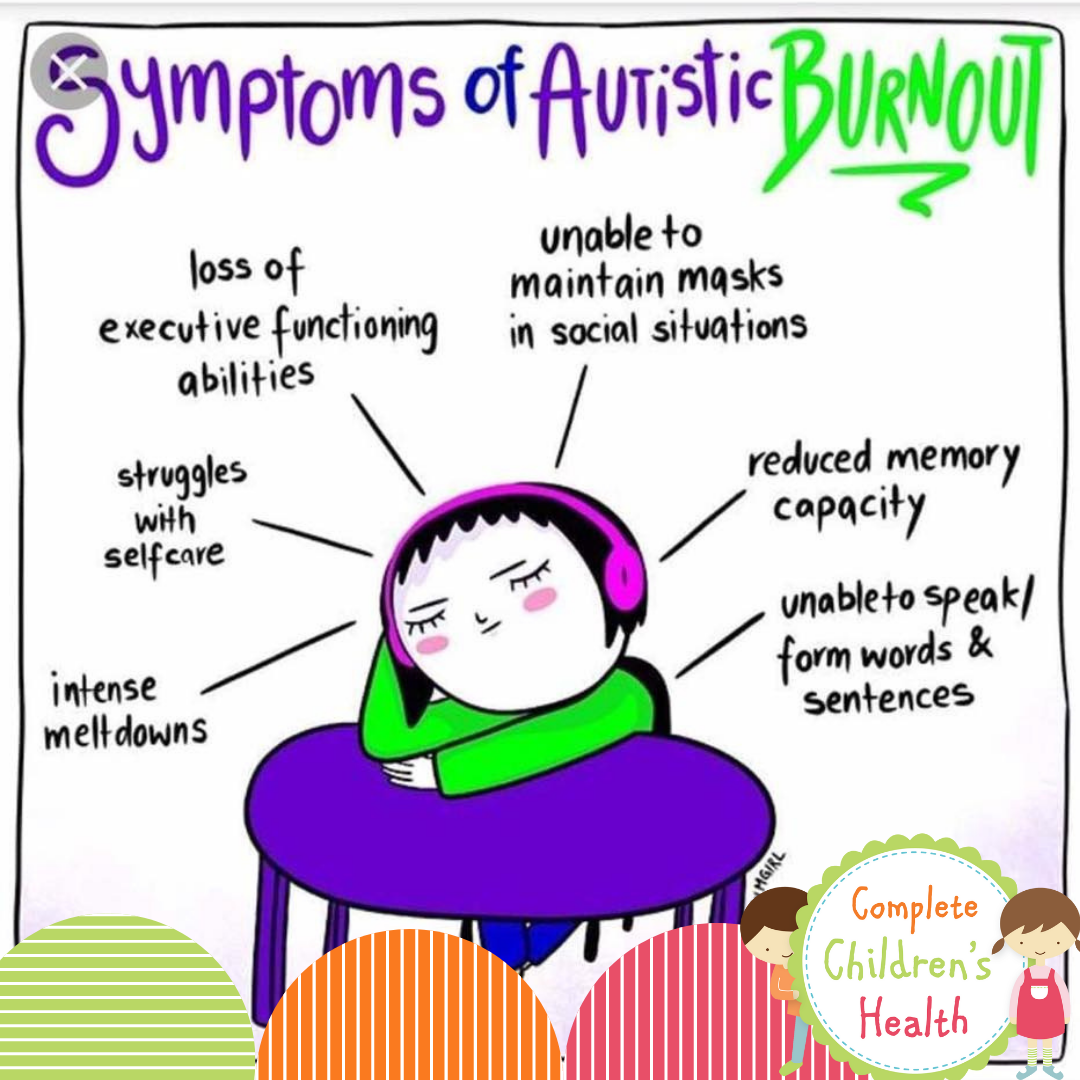We often talk about how girls are more difficult to diagnose as being on the spectrum as they are good at masking or camouflaging. They copy behaviours and force themselves to behave in a socially acceptable way, reflecting what they see around them. Boy can do this too, but it is more common in girls.
Can you imagine doing this every day to get by? It can constantly be exhausting trying to “mask” who you are from the world. Exhaustion (fatigue) and then burnout can happen to anybody, but being autistic can make fatigue and burnout more likely, due to the pressures of social situations and sensory overload.

Additional Causes
- External expectations that outweigh the ability to meet them
- Chronic masking, struggle to “pass” as non-autistic or repress autistic behaviour, i.e. stimming
- Change, stress from change, stress
- Inability to recover quickly enough from the strain of pushing to meet external expectations/mask/cope
Often the case for autistic people, burnout may hit differently, but one thing stands out: sheer exhaustion. Autistic Burnout can feel like all the energy is just gone, and even routine everyday tasks can feel difficult or insurmountable. Another term is Social Burnout, where your day, just living, talking to people, being assaulted by senses, exhausts you to the point where you collapse in a heap at the end of the day or the end of the week, depending on your stamina. It can happen at any age, from a baby up until old age.
Signs of burnout in autistic children may include:
- decreased vocabulary
- emotional volatility
- increased stimming
- reduced eye contact
- withdrawal from activities
Autistic Burnout is the shutting down of mind and body. Children are less likely to express or communicate effectively, if at all, any of these, or why they feel the way they do, or even how they feel the way they do, especially if they are on the spectrum.
Strategies and Recommendations
- Time off from school, job, life
- Reduced self-expectations
- Stimming, time with special interests
- Sensory or social withdrawal
- Time spent without the “mask.”
- Time out, time to recover
It is important to be aware of autistic Burnout to help your children through these times or limit the causes. We can help with additional strategies. Children can have meltdowns, but burn out behaviour is longer lasting and needs to be managed effectively.
Additional reading
https://www.spectrumnews.org/news/autistic-burnout-explained/
https://www.autism.org.uk/advice-and-guidance/topics/mental-health/autistic-fatigue/autistic-adults
https://boren.blog/2017/01/26/autistic-burnout-the-cost-of-coping-and-passing/
https://theautisticadvocate.com/2018/05/an-autistic-burnout/
https://www.youtube.com/watch?v=DZwfujkNBGk&t=1s
